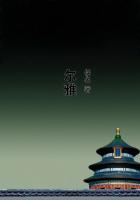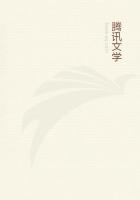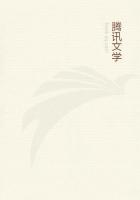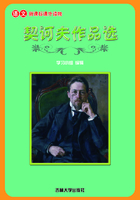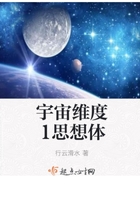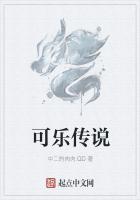Who now dare say we throw away Our goods or liberty, When God's most holy Word doth say We gain thus much thereby?"It will be seen that though Bunyan's verses are certainly not high-class poetry, they are very far removed from doggerel. Nothing indeed that Bunyan ever wrote, however rugged the rhymes and limping the metre, can be so stigmatized. The rude scribblings on the margins of the copy of the "Book of Martyrs," which bears Bunyan's signature on the title-pages, though regarded by Southey as "undoubtedly" his, certainly came from a later and must less instructed pen. And as he advanced in his literary career, his claim to the title of a poet, though never of the highest, was much strengthened. The verses which diversify the narrative in the Second Part of "The Pilgrim's Progress" are decidedly superior to those in the First Part, and some are of high excellence. Who is ignorant of the charming little song of the Shepherd Boy in the Valley of Humiliation, "in very mean clothes, but with a very fresh and well-favoured countenance, and wearing more of the herb called Heartsease in his bosom than he that is clad in silk and velvet?" -"He that is down need fear no fall;
He that is low, no pride;
He that is humble, ever shall Have God to be his guide.
I am content with what I have, Little be it or much, And, Lord, contentment still I crave, Because Thou savest such.
Fulness to such a burden is That go on Pilgrimage, Here little, and hereafter Bliss Is best from age to age."Bunyan reaches a still higher flight in Valiant-for-Truth's song, later on, the Shakesperian ring of which recalls Amiens' in "As You Like It,""Under the greenwood tree, Who loves to lie with me. . .
Come hither, come hither," and has led some to question whether it can be Bunyan's own. The resemblance, as Mr. Froude remarks, is "too near to be accidental.""Perhaps he may have heard the lines, and the rhymes may have clung to him without his knowing whence they came.""Who would true Valour see, Let him come hither, One here will constant be, Come wind, come weather.
There's no discouragement Shall make him once relent His first avowed intent To be a Pilgrim.
Who so beset him round With dismal stories, Do but themselves confound His strength the more is.
No lion can him fright, He'll with a giant fight, But he will have a right To be a Pilgrim.
Hobgoblin nor foul fiend Can daunt his spirit, He knows he at the end Shall life inherit.
Then fancies fly away He'll fear not what men say, He'll labour night and day To be a Pilgrim."All readers of "The Pilgrim's Progress" and "The Holy War" are familiar with the long metrical compositions giving the history of these works by which they are prefaced and the latter work is closed. No more characteristic examples of Bunyan's muse can be found. They show his excellent command of his native tongue in racy vernacular, homely but never vulgar, and his power of expressing his meaning "with sharp defined outlines and without the waste of a word."Take this account of his perplexity, when the First Part of his "Pilgrim's Progress" was finished, whether it should be given to the world or no, and the characteristic decision with which he settled the question for himself:-"Well, when I had then put mine ends together, I show'd them others that I might see whether They would condemn them, or them justify;And some said Let them live; some, Let them die.
Some said, John, print it; others said, Not so;Some said it might do good; others said No.
Now was I in a strait, and did not see Which was the best thing to be done by me;At last I thought since you are thus divided I print it will; and so the case decided;"or the lines in which he introduces the Second Part of the Pilgrim to the readers of the former part:-"Go now, my little Book, to every place Where my first Pilgrim hath but shown his face:
Call at their door: If any say, 'Who's there?'
Then answer that Christiana is here.
If they bid thee come in, then enter thou With all thy boys. And then, as thou knowest how, Tell who they are, also from whence they came;Perhaps they'll know them by their looks or name.
But if they should not, ask them yet again If formerly they did not entertain One Christian, a pilgrim. If they say They did, and were delighted in his way:
Then let them know that these related are Unto him, yea, his wife and children are.
Tell them that they have left their house and home, Are turned Pilgrims, seek a world to come;That they have met with hardships on the way, That they do meet with troubles night and day."How racy, even if the lines are a little halting, is the defence of the genuineness of his Pilgrim in "The Advertisement to the Reader"at the end of "The Holy War."
"Some say the Pilgrim's Progress is not mine, Insinuating as if I would shine In name or fame by the worth of another, Like some made rich by robbing of their brother;Or that so fond I am of being sire I'll father bastards; or if need require, I'll tell a lie or print to get applause.
I scorn it. John such dirt-heap never was Since God converted him. . .
Witness my name, if anagram'd to thee The letters make NU HONY IN A B.
IOHN BUNYAN."
How full of life and vigour his sketch of the beleaguerment and deliverance of "Mansoul," as a picture of his own spiritual experience, in the introductory verses to "The Holy War"! -"For my part I, myself, was in the town, Both when 'twas set up, and when pulling down;I saw Diabolus in possession, And Mansoul also under his oppression.
Yes, I was there when she crowned him for lord, And to him did submit with one accord.
When Mansoul trampled upon things divine, And wallowed in filth as doth a swine, When she betook herself unto her arms, Fought her Emmanuel, despised his charms:
Then I was there, and did rejoice to see Diabolus and Mansoul so agree.

